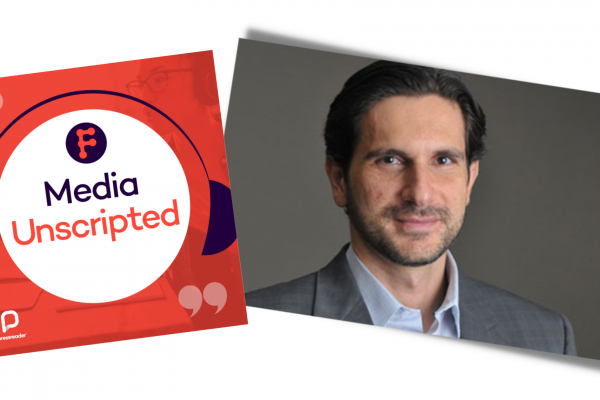Media Unscripted: episode 6 with Frederic Kachar, Grupo Global, Brazil now available on general release
The latest episode of FIPP’s Media Unscripted podcast, in partnership with PressReader, is now available to all on general release. In the sixth episode of the season, we hear from Fredric Kachar, Managing Director of Print Media and Radio at Rio de Janeiro-based Grupo Globo – the biggest mass media group in Latin America.
Engendering a digital mindset
Kachar tells host Charlotte Ricca about his rise through the company, and how Grupo Globo turned itself around amidst a financial crisis, reaping the rewards of being a fully fledged digital media company by 2019 thanks to a transformation process partly spearheaded by him many years before.
All this led to 2021 being its best year in the past 25 years by many metrics, including a small growth in print.
Although he wears many hats, Kachar believes that changing the culture of the company is his most important role. The main stumbling block? “The culture of print media is the culture of any offline company,” he explains. “I’m trying to consolidate a culture of curiosity, learning.”
The role of media in fighting disinformation
Kachar gives some background on the media landscape in Brazil, including the state of play for print, and why the subscriptions landscape is different to that in richer countries with more highly educated populations: “Yes, people are willing to pay for content, but it’s not the same. We need to be very precise about our value proposition,” says Kachar.
He is most excited and proud of the media’s positive impact on society, especially with President Bolsonaro in power and disinformation rife. “We have a president that – to mention just one unbelievable initiative – was against the [Covid-19] vaccine. He managed to build in the minds of the population that vaccines are dangerous,” he explains.
To challenge fake news, they joined with other publishers to keep an official count of how many deaths were being recorded (after the federal Brazilian government stopped doing this) and included a daily supplement to cover Covid-19 in print editions. “During the whole pandemic, we invested a lot in having science journalists who understood what was happening,” he added. “And we also tried to bring entertainment to poor people stuck at home.”

Kachar is also firm on social media companies as publishers, not platforms or tech companies. Journalistic investigations have exposed the shocking role of apps like Telegram in spreading not only fake news, but violent crime in Brazil.
He is therefore incredibly proud of the work of trusted media in the country. “I think we are very creative in Brazil … My hope is that we bring creative solutions to all the media challenges which are global,” he said.
You can access the podcast in full here.










